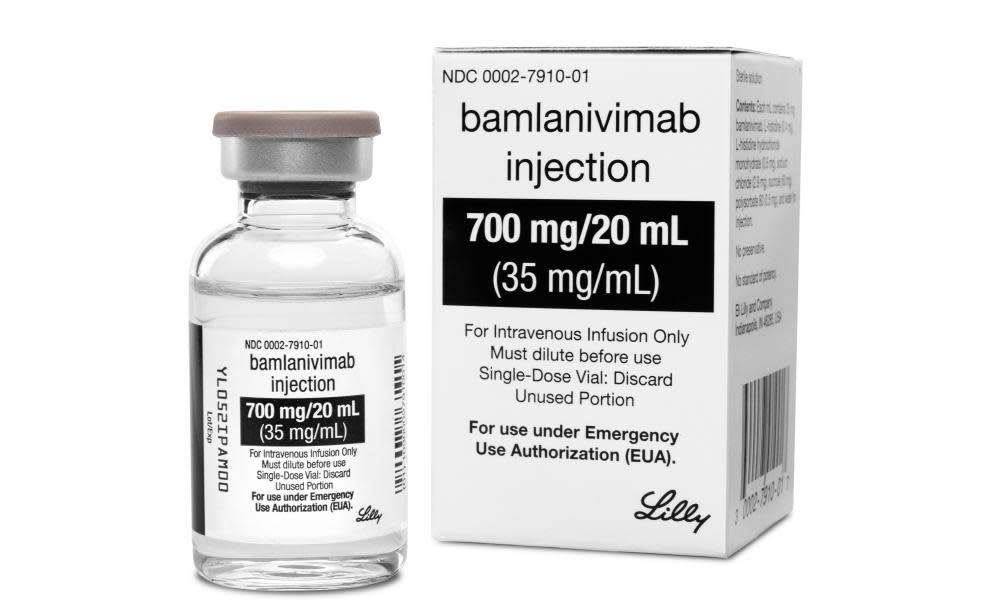Germany to administer Covid drugs used to treat Donald Trump

Specialist clinics in Germany will this week become the first hospitals in the EU to treat Covid-19 patients with expensive and experimental antibody cocktails used to treat the former US president Donald Trump after he caught the virus last October.
“Monoclonal antibodies will be used in Germany as the first country in the EU, initially in university clinics,” the health minister, Jens Spahn, told Bild am Sonntag newspaper, confirming that his government had bought 200,000 doses for €400m (£355m).
Containing lab-made antibodies that attach to the coronavirus spike protein and prevent it from hijacking cells, the drugs would initially only be used on high-risk patients with weak immune systems and at an early stage of the illness, a health ministry spokesperson said on Monday.
The two antibody-based drugs purchased by Germany are Bamlanivimab by US pharmaceutical company Eli Lilly and REGN-COV-2 by Regeneron Pharmaceuticals.
Monoclonal antibody therapies, which are also used as a “passive vaccination” against diseases such as tetanus or rabies, are notoriously difficult to produce and expensive.
Trump credited the Regeneron therapy for his early recovery from coronavirus in October, after receiving a single 8-gram dose of its monoclonal antibody cocktail at the Walter Reed National Military Medical Center.
America’s leading infectious disease expert Anthony Fauci at the time said he suspected that Regeneron’s drug had contributed to Trump’s recovery, but “you can’t prove that until you do a number of studies to show that it actually works”.
Recent studies have given scientists new hope, however, with a December 2020 article in the New England Journal of Medicine noting that the REGN-COV-2 antibody cocktail “reduced viral load”, especially in patients whose immune response had not yet been initiated or who had a high viral load at baseline.
Neither Regeneron’s nor Eli Lilly’s antibodies cocktails have yet been approved for general use by EMA, the European Medicines Agency. In Germany, patients will be treated with the drugs under a compassionate use clause, a treatment option allowing the use of an unauthorised medicine under strict conditions.
In the US, the two drugs were granted emergency clearance by the FDA in November last year but have only been used sparsely because they need to be infused into the bloodstream, which requires patients to be in a hospital setting at an early stage of the infection.

 Yahoo Movies
Yahoo Movies 
